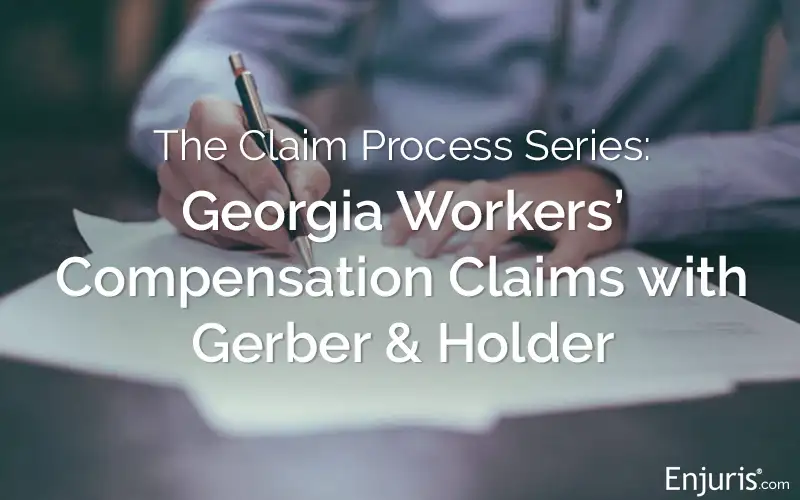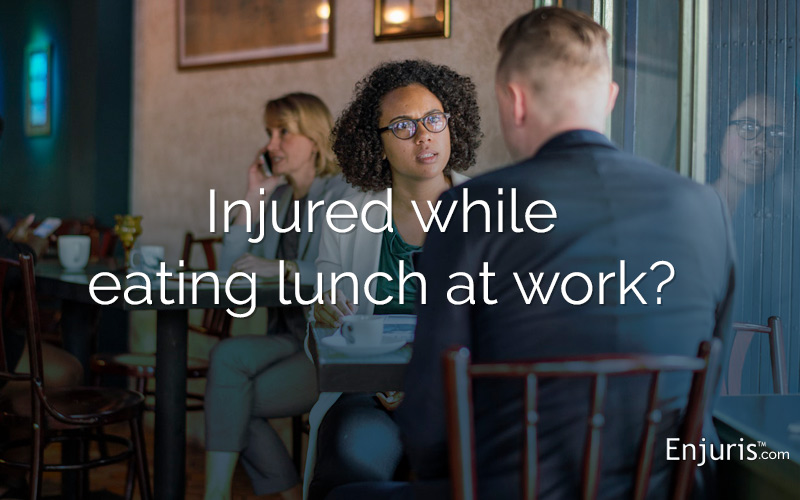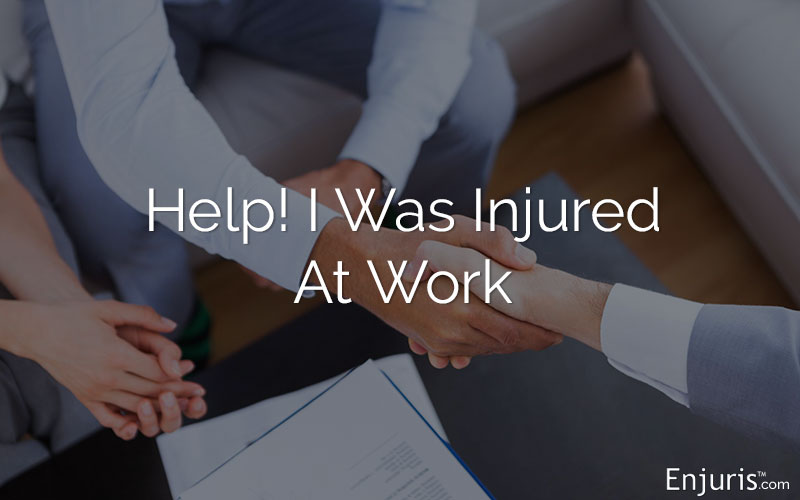Under Georgia's workers' compensation laws, an employee is usually entitled to receive workers' compensation benefits if they're injured on the job. However, a recent Georgia court of appeals case makes clear that this may not include situations where the employee is injured on their lunch break.
Georgia's workers' compensation act
Georgia's workers' compensation act was adopted in 1920. The act requires most employers with three or more employees to provide workers' compensation coverage to their employees.
In order to be eligible for benefits, an employee must be injured by an accident that:
- Arises out of the employment
- Arises in the course of the employment
Arises out of the employment
The term "arises out of the employment" means that there is a connection between the work required to be performed and the resulting injury. For example, if you injure your back while lifting bricks for a masonry company, your injury arose out of your employment.
On the other hand, if you have a heart attack while entering data for a software company, your injury didn't arise out of your employment. Rather, your injury was caused by something that would have occurred apart from your employment.
Arises in the course of the employment
The term "arises in the course of employment" means that the injury occurs:
- Within the period of employment
- At a place where the employee may reasonably be in the performance of their duties
- While the employee is fulfilling those duties or engaged in something connected with those duties
An injury "arises in the course of employment" if it occurs while the employee is arriving at or leaving work. In other words, if you're injured while traveling from your office to the parking lot or from the parking lot to your office, you're eligible for workers' compensation benefits.
This is called the "ingress-egress rule." The idea behind the rule is that going to and from the parking lot is not a "personal pursuit," but rather something connected with your work duties.
The Georgia court of appeals case
In the recent Georgia court of appeals case, Frett v. State Farm Insurance Employee Workers' Compensation et al., an employee at an insurance company was injured when she slipped on some water while leaving the break room during her scheduled lunch break.
The issue in the case was whether an injury that occurs while leaving the break room during a scheduled lunch break is an injury that "arises in the course of employment."
Injuries that occur during scheduled breaks are generally NOT covered
In general, scheduled lunch breaks and rest breaks are considered "personal pursuits" and if you're injured during such a break, you cannot receive workers' compensation benefits for the injury in Georgia. The reason for this is that a scheduled break is considered a purely personal pursuit because you can do whatever you want with your time. In other words, you're "off the clock."
On the other hand, unscheduled breaks aren't considered "personal pursuits" and therefore an injury that occurs during an unscheduled break (such as a bathroom break) is compensable.
Does the ingress-egress rule apply to scheduled breaks?
While you can receive workers' comp benefits for an injury that occurs while leaving or arriving at work, the recent Georgia court of appeals case makes clear that you cannot receive benefits for an injury that occurs while leaving or returning from a scheduled break. As a result, the insurance employee in the Georgia case wasn't able to receive workers' compensation benefits.
There are a number of additional factors that affect whether or not an employee can receive workers' compensation benefits. Moreover, just because an employee cannot receive benefits, doesn't mean the employee cannot sue the employer and recover compensation on some other ground, such as negligence.
For these reasons and more, if you're injured on the job, you should consider speaking with a workers' compensation attorney. Use our free online directory to find an attorney near you. Have you been injured during a work break?




